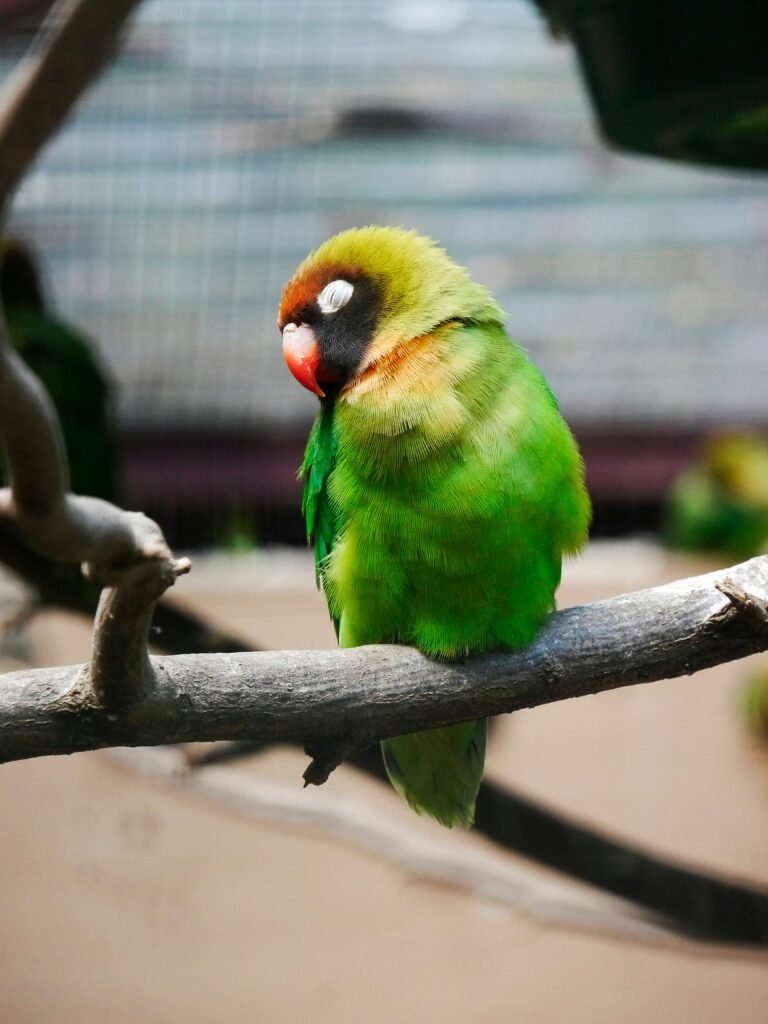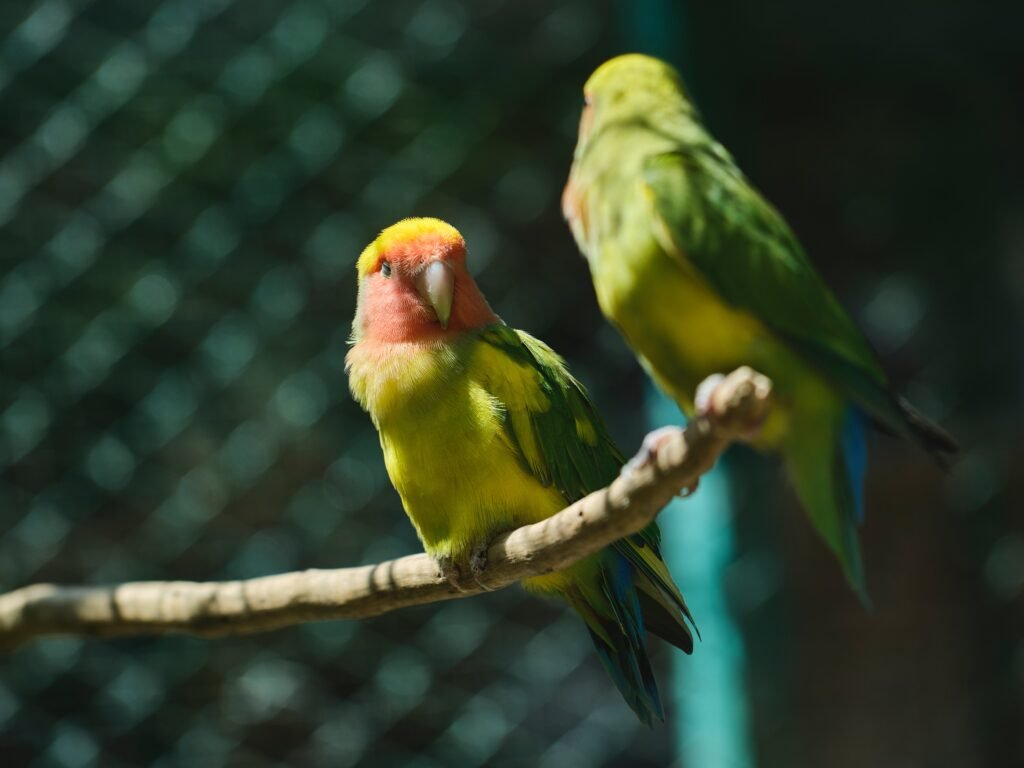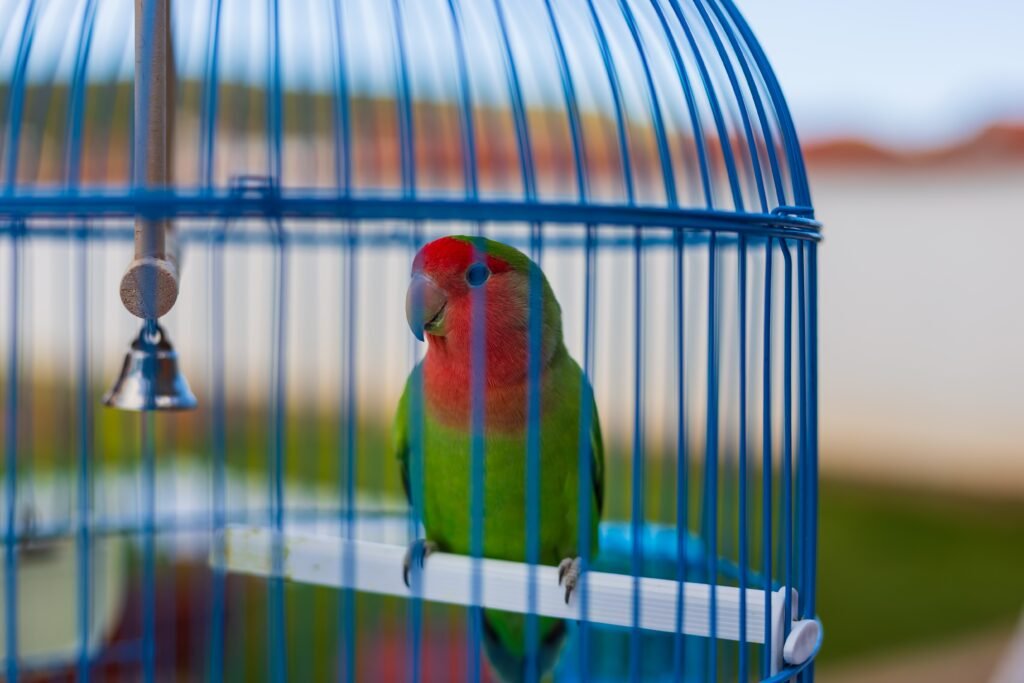 Lovebirds are small, intelligent, and charming birds that make wonderful pets. As a responsible lovebird owner, it is important to be aware of the foods that can be harmful or even toxic to these beautiful creatures. While lovebirds have a diverse diet, there are certain foods that should be avoided to ensure their health and well-being. In this article, we will explore the foods that lovebirds should not eat, helping you provide the best care for your feathered friends.
Lovebirds are small, intelligent, and charming birds that make wonderful pets. As a responsible lovebird owner, it is important to be aware of the foods that can be harmful or even toxic to these beautiful creatures. While lovebirds have a diverse diet, there are certain foods that should be avoided to ensure their health and well-being. In this article, we will explore the foods that lovebirds should not eat, helping you provide the best care for your feathered friends.
1. Avocado
Avocado is a popular fruit among humans due to its numerous health benefits, but it can be extremely toxic to lovebirds. This fruit contains a substance called persin, which can cause heart and respiratory problems in birds. It is crucial to keep avocados away from your lovebird’s reach to prevent any potential harm.
Avocado is a fruit that offers many health benefits to humans, such as being a good source of healthy fats and essential nutrients. However, for lovebirds, it can be highly toxic. The presence of persin in avocados can lead to severe health issues in these birds, including heart and respiratory problems. To ensure the well-being of your lovebird, it is essential to keep avocados out of their reach at all times.
2. Chocolate
While chocolate is a delightful treat for humans, it is toxic to birds. Chocolate contains theobromine, a compound that can cause a range of health issues, including vomiting, diarrhea, and even heart failure in lovebirds. Never offer chocolate as a treat to your feathered companion, and be cautious of any products containing chocolate that may be accessible to them.
Chocolate, a beloved treat for many people, is unfortunately toxic to lovebirds. The presence of theobromine in chocolate can have detrimental effects on their health, leading to symptoms like vomiting, diarrhea, and even heart failure. It is crucial to remember that even a small amount of chocolate can be harmful to your lovebird, so it is best to avoid giving them any chocolate treats. Additionally, be cautious of any products containing chocolate that may be within their reach, as accidental ingestion can have serious consequences.
3. Caffeine
Caffeine is a stimulant found in various beverages like coffee, tea, and energy drinks. Lovebirds are extremely sensitive to caffeine, and even a small amount can lead to nervous system problems, increased heart rate, and hyperactivity. It is crucial to keep all caffeinated products away from lovebirds to prevent potential health complications.
Lovebirds are highly sensitive to caffeine, a common stimulant found in beverages like coffee, tea, and energy drinks. Even a small amount of caffeine can have significant negative effects on their nervous system, leading to issues such as increased heart rate and hyperactivity. To protect the well-being of your lovebird, it is vital to keep all caffeinated products out of their reach. This includes not only beverages but also any food items that may contain caffeine as an ingredient.
4. Alcohol
Alcohol is highly toxic to birds and can cause severe damage to their liver and nervous system. Even a small amount of alcohol can be fatal to lovebirds. It is essential to ensure that your lovebird is never exposed to alcohol, whether through direct consumption or accidental exposure.
Alcohol, a substance that humans consume for recreational purposes, is extremely toxic to lovebirds. Even a small amount of alcohol can have devastating effects on their liver and nervous system, potentially leading to fatality. As a responsible lovebird owner, it is crucial to ensure that your feathered friend is never exposed to alcohol. This includes being cautious of any spills or residues that may be present in the environment, as accidental exposure can have dire consequences.
5. Onions and Garlic
While onions and garlic are beneficial to human health, they contain compounds that can cause oxidative damage to a bird’s red blood cells, leading to anemia. It is advisable to avoid feeding lovebirds any food that contains onions or garlic, including cooked dishes, as even small amounts can be harmful.
Onions and garlic, commonly used ingredients in human dishes, contain compounds that can be detrimental to the health of lovebirds. These compounds have the potential to cause oxidative damage to the red blood cells of birds, ultimately leading to anemia. It is important to note that even small amounts of onions or garlic can be harmful to lovebirds. Therefore, it is recommended to avoid feeding them any foods that contain these ingredients, including cooked dishes that may have been seasoned with onions or garlic.
6. Dairy Products
Lovebirds lack the necessary enzymes to break down lactose, the sugar found in milk and other dairy products. Feeding lovebirds dairy can result in digestive upset, including diarrhea and stomach discomfort. It is best to avoid offering any dairy products to lovebirds to prevent these issues.
Dairy products, such as milk and cheese, should be avoided when it comes to the diet of lovebirds. These birds lack the necessary enzymes to break down lactose, the sugar found in dairy products. Feeding lovebirds dairy can lead to digestive problems, including diarrhea and stomach discomfort. To ensure the well-being of your lovebird, it is recommended to refrain from offering any dairy products as part of their diet.
7. Sugary and Salty Foods
Foods high in sugar and salt can be detrimental to lovebirds’ health. Excessive sugar consumption can lead to obesity, diabetes, and other health problems. Similarly, high sodium levels can cause dehydration and kidney issues. It is essential to avoid feeding lovebirds sugary or salty foods, including processed snacks, sugary cereals, and table scraps.
Lovebirds should steer clear of foods that are high in sugar and salt. Excessive sugar consumption can have adverse effects on their health, including obesity, diabetes, and other related issues. In addition, high sodium levels can lead to dehydration and kidney problems. To maintain the well-being of your lovebird, it is crucial to avoid feeding them sugary or salty foods. This includes processed snacks, sugary cereals, and table scraps, which should be strictly off-limits.
8. Seeds from Fruits
While lovebirds enjoy munching on fruits, it is crucial to remove any seeds from the fruits before offering them to your feathered friend. Many fruit seeds, such as apple, cherry, and peach seeds, contain small amounts of cyanide which can be toxic to birds. Always ensure that the fruits you provide are seed-free to prevent any potential harm.
While lovebirds can safely enjoy fruits, it is important to be cautious of the seeds within them. Seeds from fruits like apples, cherries, and peaches contain small amounts of cyanide, which can be toxic to birds. To protect your lovebird from potential harm, always remove any seeds from the fruits before offering them as a treat. By ensuring that the fruits you provide are seed-free, you can prevent any accidental ingestion of harmful substances.
9. Rhubarb
Rhubarb, a versatile vegetable commonly used in cooking and baking, contains oxalic acid. This compound is toxic to lovebirds and can cause digestive issues and kidney damage. It is advisable to keep rhubarb away from your lovebird’s diet to ensure their well-being.
While rhubarb is a versatile vegetable used in various culinary preparations, it is not suitable for lovebirds. Rhubarb contains oxalic acid, a compound that can be toxic to these birds. Ingesting rhubarb can lead to digestive problems and even kidney damage in lovebirds. To prioritize the health of your feathered companion, it is best to avoid including rhubarb in their diet altogether.
Conclusion
As a loving and responsible lovebird owner, it is vital to provide a safe and nourishing diet for your feathered companions. Avoid feeding them avocados, chocolate, caffeine, alcohol, onions, garlic, dairy products, sugary and salty foods, seeds from fruits, and rhubarb. By being aware of these food items that can be harmful or toxic to lovebirds, you can help ensure their longevity and happiness. Always consult with an avian veterinarian if you are unsure about the suitability of any particular food for your lovebird.
FAQ
1. Can lovebirds eat avocados?
No, avocados are extremely toxic to lovebirds due to the presence of persin, which can cause heart and respiratory problems.
2. Is chocolate safe for lovebirds?
No, chocolate is toxic to lovebirds as it contains theobromine, which can lead to vomiting, diarrhea, and even heart failure.


